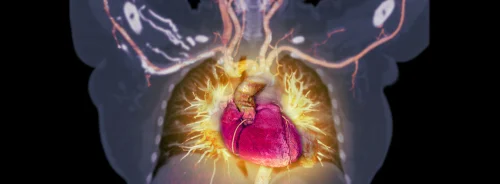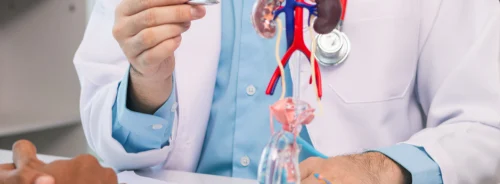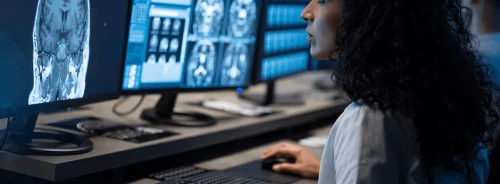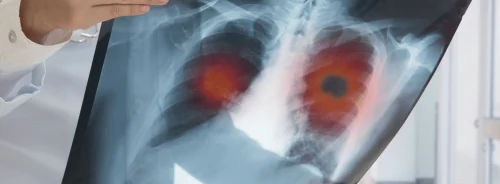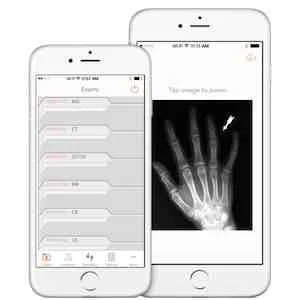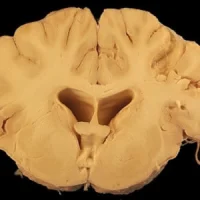Children’s Hospital Los Angeles has become the first clinical site to offer a free app that allows patient families to receive imaging files via smartphones and other mobile devices, or to request the files be sent directly to another caregiver. The large data files (eg, a typical MR image is about 500 MB in size) are encrypted and stored securely on a patient’s personal cloud-based system, which can also be accessed at no charge.
This first-of-its-kind app, called ImageInbox, is meant to improve the patient experience and provide assurance to both doctors and patients that healthcare information is available at the point of care. Often patients have had to ask their radiologist to transfer medical images to a CD, then pick up these medical records in person and deliver them to a referring physician, when necessary — a cumbersome process.
“It allows parents to own — and have immediate access to — their child’s imaging medical records,” says Stephan G. Erberich, PhD, director of Biomedical Information at The Saban Research Institute of CHLA. "The system is fully protected and private."
Erberich and Marvin D. Nelson, MD, chair of the Department of Radiology at CHLA — both also professors at Keck School of Medicine of the University of Southern California — are co-founders of NexGenic, the company that developed ImageInbox.
The app makes care more affordable for patients as they can avoid having duplicate scans done when they switch healthcare providers. Also, hospitals can easily exchange medical images electronically, directly with the patient, instead of using older, more expensive technologies like CDs to store and share the data.
“This also means the children can avoid unnecessary radiation exposure that can occur with repeating tests,” Dr. Nelson points out. “Importantly, their families will have these records, even multidimensional images like MRIs or 3D CT, if and when they need them, anywhere in the world with internet access.”
App User's Testimony
“We were one of the first families to use ImageInbox in an emergency situation, and it was an absolute life saver,” says Lee Daly. Her daughter, Alexandra, was treated at CHLA for several years, where brain surgeons performed three craniotomies. The family later moved to Oregon where, at age 19, Alexandra exhibited mysterious symptoms that worried her family and new doctors.
Daly said that she found it nearly impossible to obtain her daughter’s early brain scans to share with the neurosurgeons at Oregon Health and Science University Medical Center, so they could compare the large mass they were now seeing on Alexandra’s tonsil with images of the brain-stem bleed she had experienced as a child. Facing exploratory surgery for her daughter, since OHSU were unable to compare their images to earlier ones, Daly reached out to Dr. Nelson and his team for help to quickly obtain Alexandra’s previous CT scans and MRIs from CHLA.
“If we hadn’t been able to get these images quickly, my daughter would have faced unnecessary, invasive and potentially dangerous surgery,” Daly notes. Her daughter's imaging records are now stored on their personal cloud storage and accessible on their smartphones.
Source and image credit: Children's Hospital Los Angeles Saban Research Institute
This first-of-its-kind app, called ImageInbox, is meant to improve the patient experience and provide assurance to both doctors and patients that healthcare information is available at the point of care. Often patients have had to ask their radiologist to transfer medical images to a CD, then pick up these medical records in person and deliver them to a referring physician, when necessary — a cumbersome process.
“It allows parents to own — and have immediate access to — their child’s imaging medical records,” says Stephan G. Erberich, PhD, director of Biomedical Information at The Saban Research Institute of CHLA. "The system is fully protected and private."
Erberich and Marvin D. Nelson, MD, chair of the Department of Radiology at CHLA — both also professors at Keck School of Medicine of the University of Southern California — are co-founders of NexGenic, the company that developed ImageInbox.
The app makes care more affordable for patients as they can avoid having duplicate scans done when they switch healthcare providers. Also, hospitals can easily exchange medical images electronically, directly with the patient, instead of using older, more expensive technologies like CDs to store and share the data.
“This also means the children can avoid unnecessary radiation exposure that can occur with repeating tests,” Dr. Nelson points out. “Importantly, their families will have these records, even multidimensional images like MRIs or 3D CT, if and when they need them, anywhere in the world with internet access.”
App User's Testimony
“We were one of the first families to use ImageInbox in an emergency situation, and it was an absolute life saver,” says Lee Daly. Her daughter, Alexandra, was treated at CHLA for several years, where brain surgeons performed three craniotomies. The family later moved to Oregon where, at age 19, Alexandra exhibited mysterious symptoms that worried her family and new doctors.
Daly said that she found it nearly impossible to obtain her daughter’s early brain scans to share with the neurosurgeons at Oregon Health and Science University Medical Center, so they could compare the large mass they were now seeing on Alexandra’s tonsil with images of the brain-stem bleed she had experienced as a child. Facing exploratory surgery for her daughter, since OHSU were unable to compare their images to earlier ones, Daly reached out to Dr. Nelson and his team for help to quickly obtain Alexandra’s previous CT scans and MRIs from CHLA.
“If we hadn’t been able to get these images quickly, my daughter would have faced unnecessary, invasive and potentially dangerous surgery,” Daly notes. Her daughter's imaging records are now stored on their personal cloud storage and accessible on their smartphones.
Source and image credit: Children's Hospital Los Angeles Saban Research Institute
Latest Articles
healthmanagement, Children's Hospital Los Angeles, mobile app, ImageInbox, image-sharing, MRI scans
Children’s Hospital Los Angeles has become the first clinical site to offer a free app that allows patient families to receive imaging files via smartphones.

